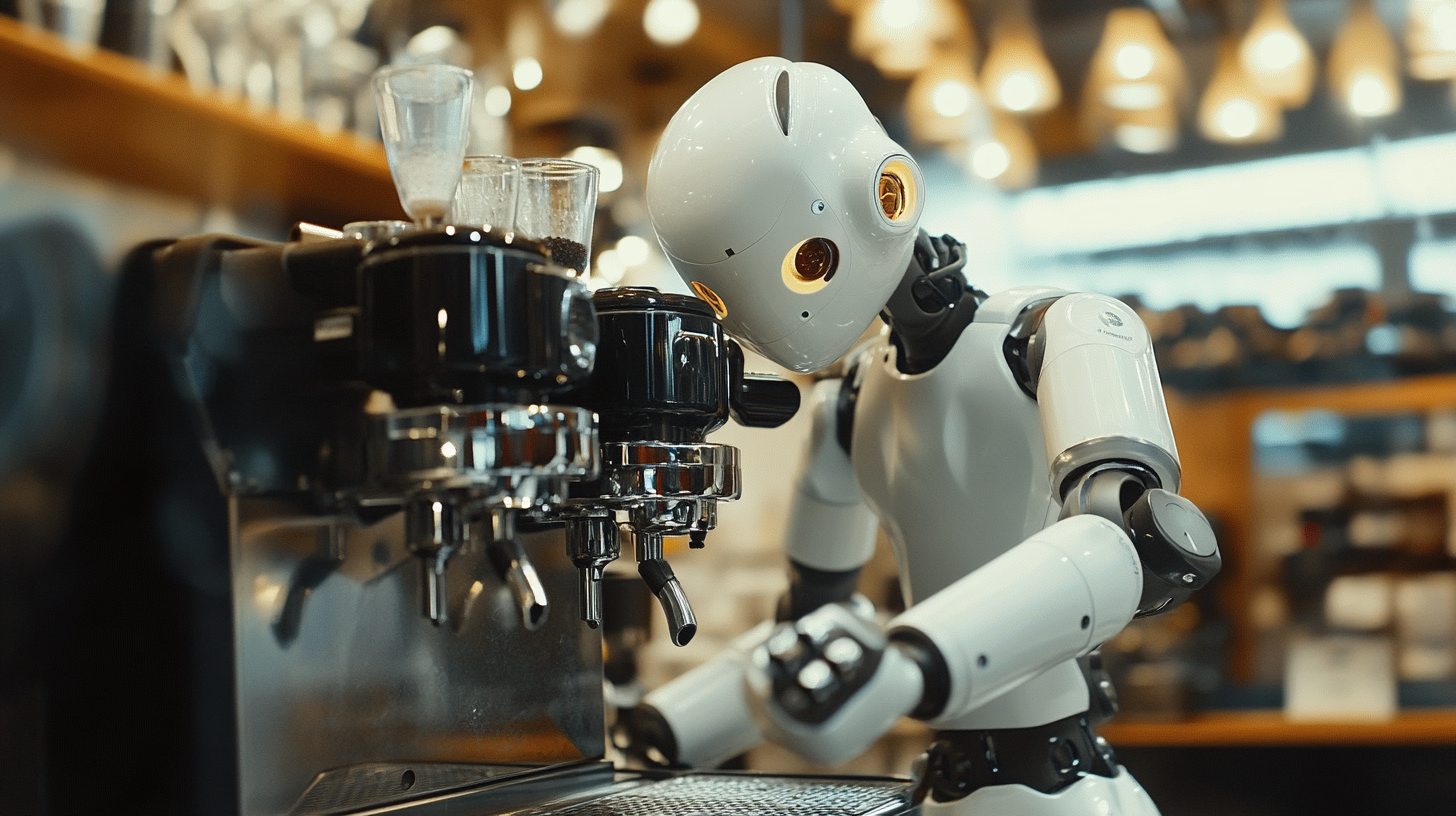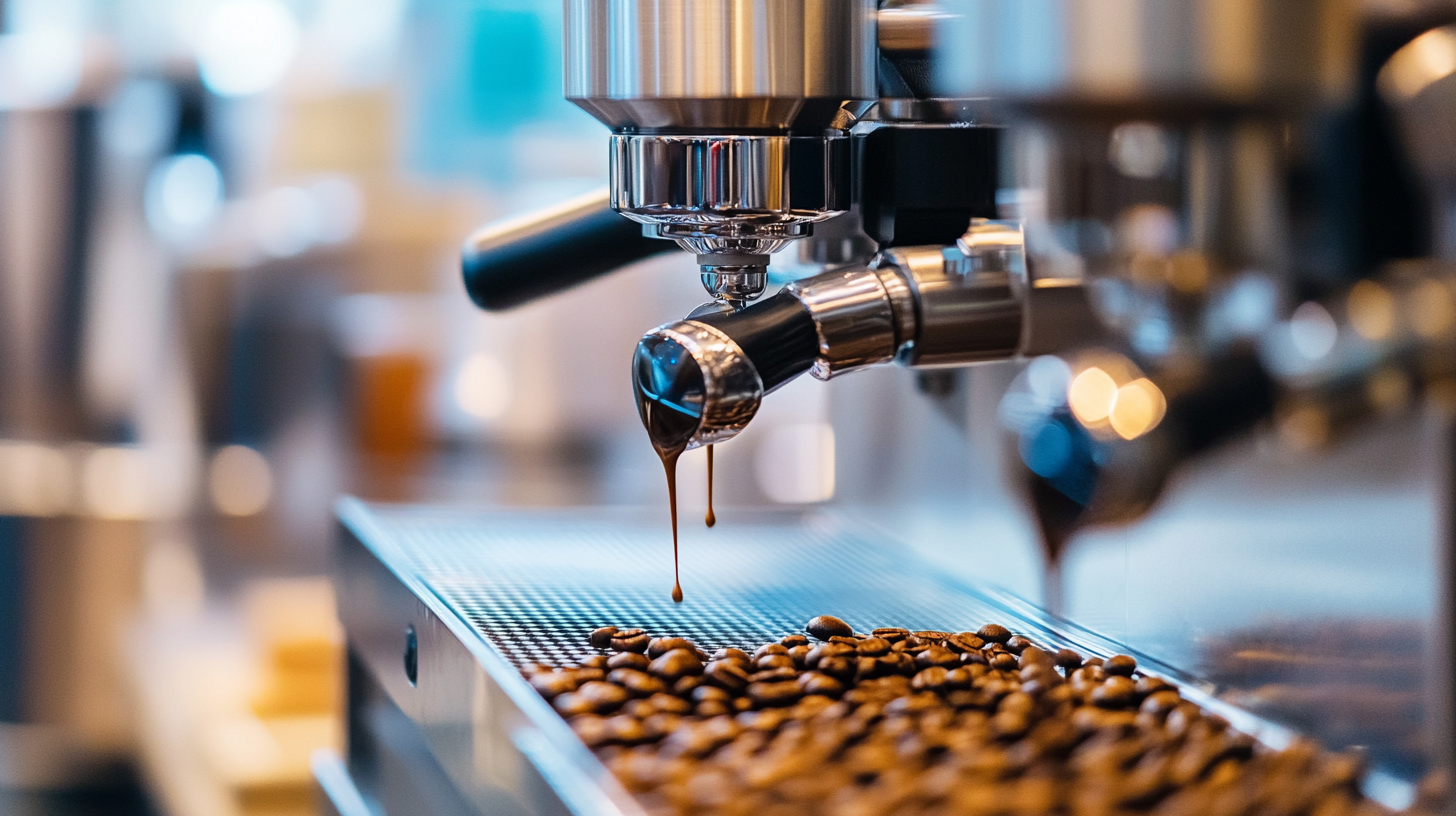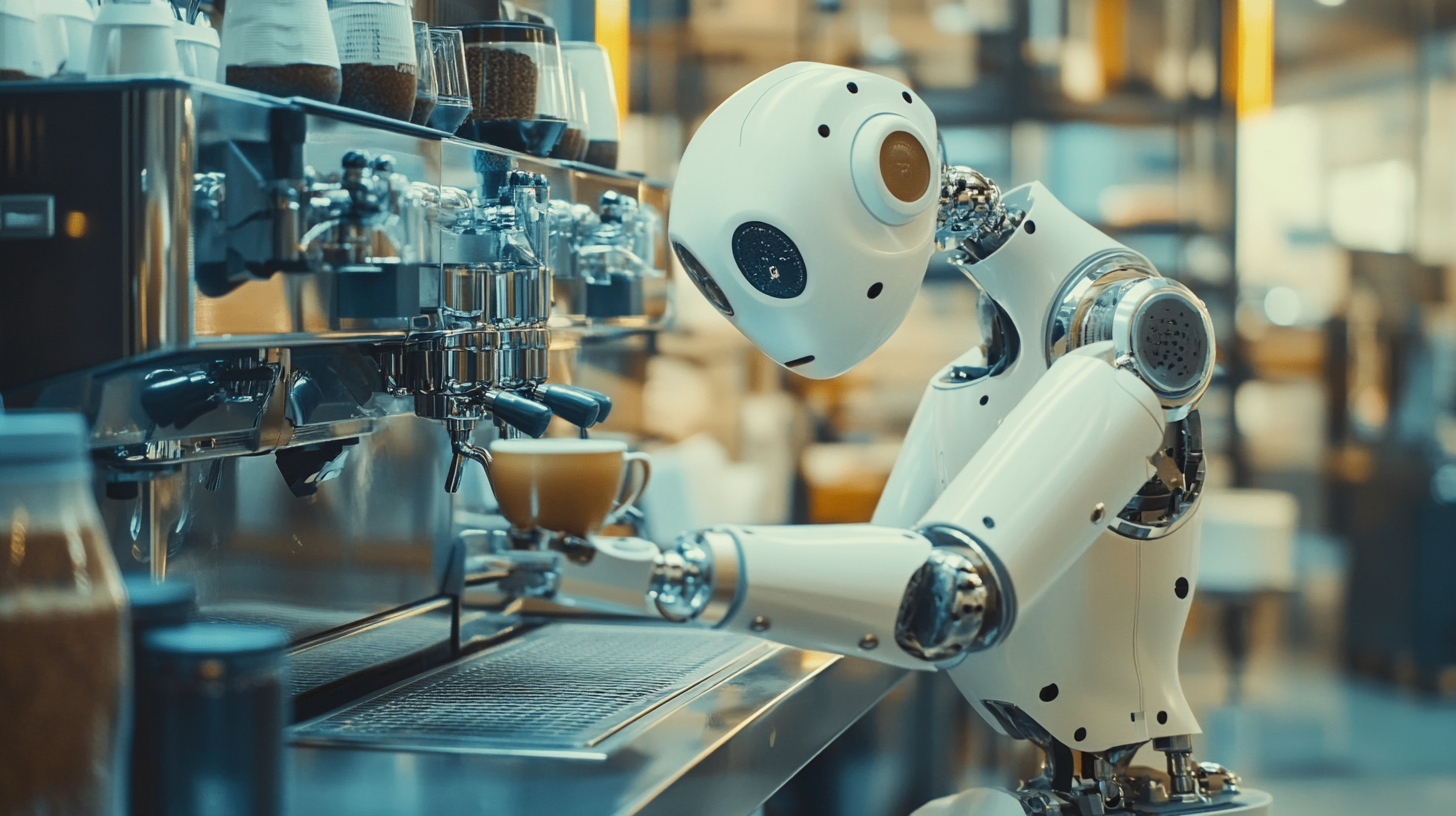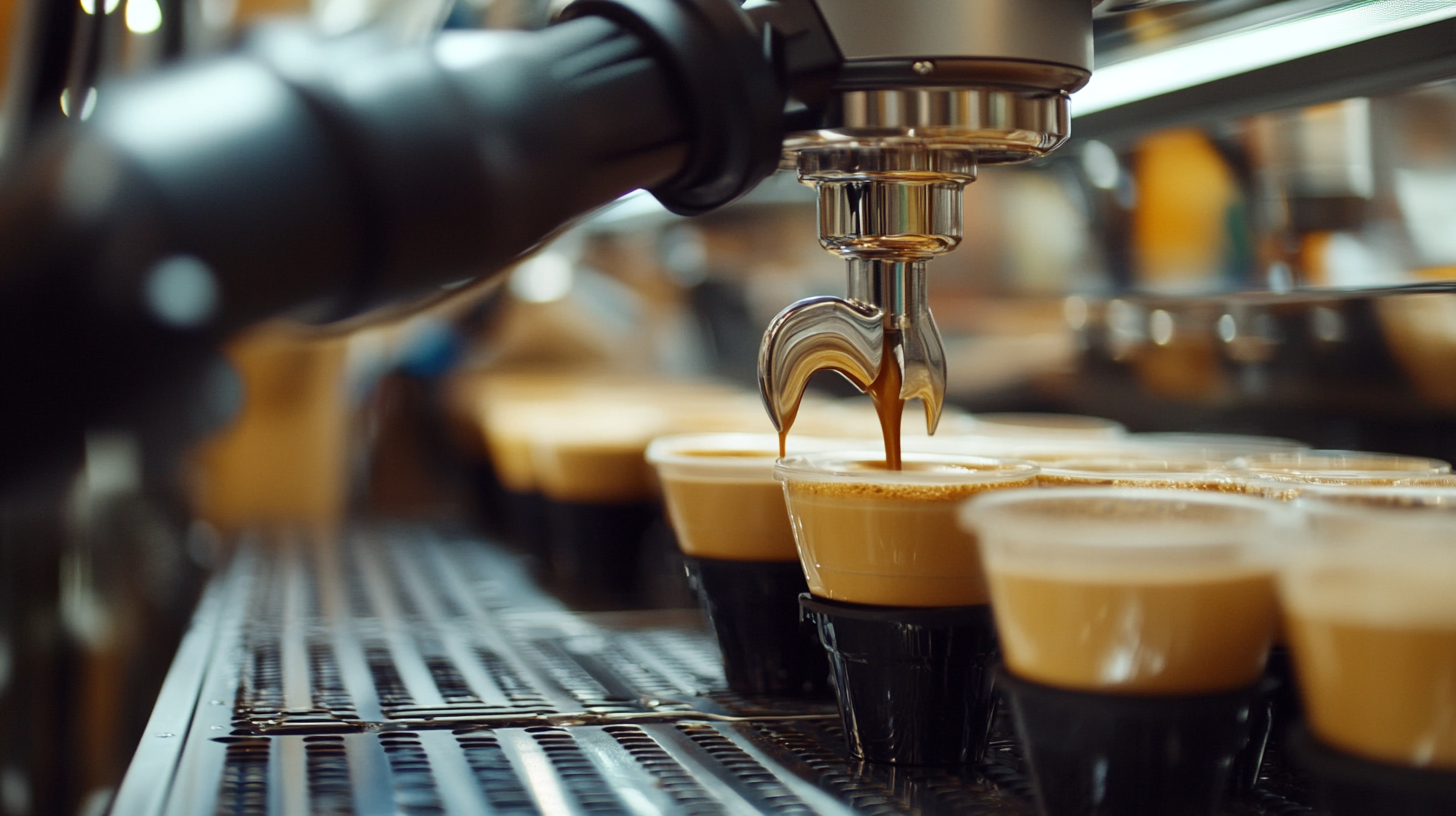As the global coffee market continues to expand, the integration of technology in food and beverage services has become increasingly prevalent. According to a report by Market Research Future, the global coffee market is projected to grow at a CAGR of 5.5% from 2022 to 2027, reaching an estimated value of approximately $102 billion. Within this thriving sector, the emergence of automated solutions such as the Robot Barista is revolutionizing the way coffee is prepared and served. These innovative machines not only enhance efficiency but also cater to the evolving consumer demand for high-quality beverages and quick service.
However, entering international markets with Robot Barista technology involves navigating a complex landscape of import-export certifications, regulations, and standards. A comprehensive understanding of the certification requirements is essential for businesses aiming to establish a foothold in the global market. The International Robotics Federation estimates that the robotics market will surpass $510 billion by 2025, indicating a robust opportunity for Robot Barista companies. This blog will provide insights into the critical import-export certifications needed for Robot Barista systems, ensuring compliance and successful market entry.

When it comes to the international trade of innovative products like robot baristas, understanding the necessary certifications is crucial for ensuring compliance and market access. The global coffee shop market is projected to exceed $450 billion by 2025, highlighting a robust opportunity for robotic coffee solutions. However, for these robotic systems to thrive in diverse markets, they must adhere to specific certification standards that ensure safety, quality, and performance. Key certifications include CE marking in Europe, which indicates that the robot meets EU safety, health, and environmental requirements. In the United States, compliance with UL (Underwriters Laboratories) standards is essential, ensuring that the robot barista is safe for consumer use. Additionally, ISO (International Organization for Standardization) certifications, such as ISO 9001 for quality management systems and ISO 14001 for environmental management, are becoming increasingly important as consumers prioritize sustainability in their purchasing decisions. Moreover, recent data from the International Federation of Robotics suggests that 34% of businesses in the food and beverage industry are looking to implement automation technologies in the next few years. This trend confirms the importance of obtaining appropriate certifications to not only comply with regulations but also to gain the trust of potential customers. As the demand for automated services grows, the right certifications will pave the way for robot baristas to establish themselves as a competitive solution in global markets.

The rise of robot baristas is reshaping the food and beverage industry, prompting urgent attention to regulatory standards that govern their use. As countries adopt more rigorous safety and quality measures for machinery in food service, manufacturers must navigate a labyrinth of import-export certifications. According to a report by MarketsandMarkets, the global market for automated beverage dispensers, which includes robot baristas, is projected to reach $3.3 billion by 2026, underscoring the need for compliance with various regional regulations to ensure market access.
In Europe, the Machinery Directive lays down essential health and safety requirements that robotic equipment must meet before entering the market. This includes conformity assessments that often require third-party testing and certification. For example, approximately 40% of food-machine failures can be attributed to inadequate testing, highlighting the critical role of regulatory adherence in maintaining operational reliability. Concurrently, in the U.S., the Food and Drug Administration (FDA) oversees the regulatory landscape, requiring that any equipment involved in food processing must comply with stringent safety standards to protect consumer health.
Furthermore, navigating certifications can vary significantly across regions. In markets like Asia-Pacific, specific guidelines, such as the ISO 22000 standard on food safety management, can influence certification processes. Companies that adopt a global approach to compliance not only ensure the safety of their products but also enhance their competitiveness in the export market. According to Mordor Intelligence, approximately 60% of companies cite regulatory compliance risks as a barrier to entry in new markets, making it imperative for manufacturers to prioritize understanding and implementing these certifications as they advance their robotic solutions in the global arena.

Import export certifications play a crucial role in determining market access for emerging technologies like robot baristas. These certifications not only ensure compliance with local regulations but also facilitate smoother entry into competitive markets. For instance, as noted in recent shifts in trade policies, like India’s stringent measures to curb low-cost steel imports from China, the importance of rigorous certification processes is highlighted. Similar protocols will be essential for robot baristas aiming to penetrate these markets.
The impact of import export certifications extends beyond regulatory compliance; they also influence consumer trust and product acceptance. When businesses ensure their products meet the necessary certification standards, they can reassure consumers about safety and quality. This is particularly important in regions with stringent food safety and technology compliance regulations, where certified products are more likely to gain market traction. Industry data indicates that certification could elevate product visibility by as much as 30%, reflecting how crucial these credentials are in capturing market share.
Recent developments in standards, such as the requirement for all goods exported to Saudi Arabia to pass through a specific submission system, underscore the evolving landscape of import regulations. With certifications like Product Certificate of Compliance (PCoC) becoming mandatory, robot barista manufacturers must adapt their compliance strategies to meet these new demands. This adaptation will not only open doors to the Saudi market but also position companies favorably on a global scale, providing a competitive edge in the rapidly growing sector of automated beverage preparation.

Navigating the intricate landscape of import and export certifications is crucial for robot barista manufacturers aiming to penetrate global markets. Compliance with regional regulations can significantly affect product acceptance and market entry. One of the best practices is to begin with thorough research into the certification requirements specific to each target market. This includes understanding the local health and safety standards, electromagnetic compatibility directives, and any specific regulations pertaining to food service equipment.
Another essential aspect is engaging with local experts or consultants who can provide insights into the certification processes. They can guide manufacturers through the often complex documentation required for compliance, ensuring that all necessary tests and evaluations are conducted before the products reach international shores. Partnership with local regulatory bodies can also facilitate smoother certification processes, as they can offer valuable advice on local consumer preferences and safety expectations.
Additionally, manufacturers should prioritize the ongoing training of their teams regarding international compliance standards. Creating a culture that values attention to regulatory details not only improves product reliability but also enhances brand reputation in global markets. Implementing a robust quality management system will aid in continual compliance, making the certification renewal process more efficient and less prone to delays. By adopting these best practices, robot barista producers can position themselves effectively in competitive international landscapes.
As the global beverage industry evolves, the introduction of autonomous beverage preparers, particularly robot baristas, is becoming increasingly popular. The demand for these innovative machines is accompanied by a burgeoning need for rigorous certification processes that ensure safety, operation efficiency, and compliance with international standards. The future trends in certification for such devices will likely focus on harmonizing regulations across different markets, which can aid in the widespread adoption of these technologies.
One exciting advancement is the emergence of novel vending machines that go beyond mere convenience, incorporating features such as specialized beverage brewing and personalized customer interactions. As these machines enter global markets, regulatory bodies are tasked with developing specific certifications that address the unique challenges presented by automation and robotics within food services. This means that developments in certification will not only revolve around product safety but also about ensuring that these robots maintain quality control and adapt to varying consumer preferences.
As we continue to observe the integration of technology into everyday service roles, the trend is clear: a well-defined certification landscape will be critical in guiding robot baristas and similar innovations through regulatory barriers. These certifications not only guarantee compliance but also build consumer trust, which is essential for the successful deployment of automated beverage solutions in nations with diverse regulatory environments. Thus, staying ahead of certification trends will significantly influence market positioning and the overall success of autonomous beverage preparers.